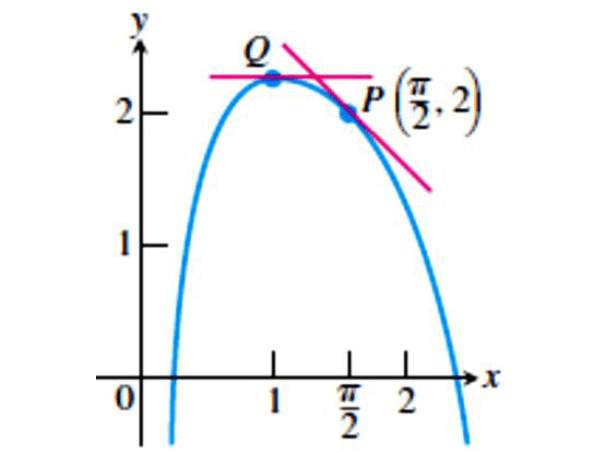HORIZONTAL ASYMPTOTES WORKSHEET
Find the equation of horizontal asymptote :
1. f(x) = 1/(x + 6)
2. f(x) = (x2 + 2x - 3)/(x2 - 5x + 6)
3. f(x) = (x2 - 4)/(2x - 3)

1. Answer :
f(x) = 1/(x + 6)
Step 1 :
In the given rational function, the largest exponent of the numerator is 0 and the largest exponent of the denominator is 1.
Step 2 :
Clearly largest exponent of the numerator is less than the largest exponent of the denominator.
So, equation of the horizontal asymptote is
y = 0 (or) x-axis
2. Answer :
f(x) = (x2 + 2x - 3)/(x2 - 5x + 6)
Step 1 :
In the given rational function, the largest exponent of the numerator is 2 and the largest exponent of the denominator is 2.
Step 2 :
Clearly, the exponent of the numerator and the denominator are equal.
Step 3 :
Now, to get the equation of the horizontal asymptote, we have to divide the coefficients of largest exponent terms of the numerator and denominator.
So, equation of the horizontal asymptote is
y = 1/1
y = 1
3. Answer :
f(x) = (x2 - 4)/(2x - 3)
Step 1 :
In the given rational function, the largest exponent of the numerator is 2 and the largest exponent of the denominator is 1.
Step 2 :
Clearly, the largest exponent of the numerator is greater than the largest exponent of the denominator.
Step 3 :
Because the largest exponent of the numerator is greater than the largest exponent of the denominator, there is no horizontal asymptote.
Kindly mail your feedback to v4formath@gmail.com
We always appreciate your feedback.
©All rights reserved. onlinemath4all.com
Recent Articles
-
AP Calculus AB Problems with Solutions
Dec 26, 24 07:41 AM
AP Calculus AB Problems with Solutions -
SAT Math Resources (Videos, Concepts, Worksheets and More)
Dec 23, 24 03:47 AM
SAT Math Resources (Videos, Concepts, Worksheets and More) -
Digital SAT Math Problems and Solutions (Part - 91)
Dec 23, 24 03:40 AM
Digital SAT Math Problems and Solutions (Part - 91)
